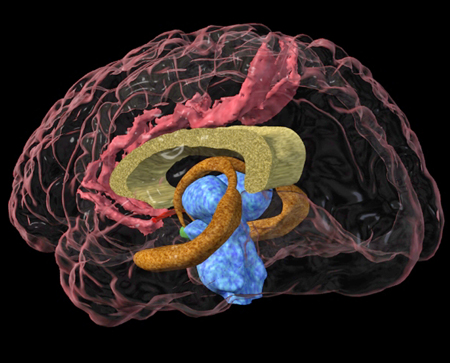Resumo
Definição
História e exame físico
Principais fatores diagnósticos
- exposição e resposta ao trauma
- sintomas intrusivos
- sintomas de evitação
- alterações negativas nas cognições e humor
- alterações no despertar e reatividade
Outros fatores diagnósticos
- depressão
- abuso de álcool ou de substâncias
- ansiedade
Fatores de risco
- acidente grave
- testemunha de violência escolar ou doméstica
- desastre natural
- ataque terrorista
- tortura
- exposição a combate
- lesão cerebral traumática
- morte súbita de ente querido
- ofensa grave
- estupro
- vitimização pelo atacante
- trauma prévio
- estressores múltiplos significativos na vida
- apoio social baixo
- história de transtorno mental
- história de uso de álcool e drogas
- sexo feminino
- idade mais jovem
Investigações diagnósticas
Primeiras investigações a serem solicitadas
- Checklist de TEPT para o DSM-5 (PCL-5)
- Questionário de Rastreamento de Trauma (TSQ)
- Escala de Diagnóstico Pós-Traumático (PDS-5)
- Questionário Internacional de Trauma (ITQ)
Investigações a serem consideradas
- Escala de TEPT Administrada pelo Clínico do DSM-5 (CAPS-5)
- Entrevista da Escala de Sintomas de TEPT para DSM-5 (PSS-I-5)
- Entrevista Internacional de Trauma (ITI)
Algoritmo de tratamento
mulheres não gestantes ou amamentando
gestantes ou lactantes
Colaboradores
Autores
Mathew Hoskins, MBBCh, MSc, MRCPsych
Consultant Psychiatrist
Cardiff and Vale University Health Board
Cardiff
Wales
Declarações
MH is Principal Investigator for a Phase 2 clinical trial of MDMA-assisted therapy in PTSD, sponsored by the Multidisciplinary Association of Psychedelic Studies; he has been reimbursed for training expenses. He is a co-founder of a medical cannabis private clinic in Wales and receives payment for consultations. MH is an author of references cited in this topic.
Catrin Lewis, BSc, PhD
Research Associate
National Centre for Mental Health
Institute of Psychological Medicine and Clinical Neurosciences
School of Medicine
Cardiff University
Cardiff
Wales
Declarações
CL is one of the originators of Spring, a digital guided self help programme for PTSD. CL is an author of references cited in this topic.
Agradecimentos
Dr Mathew Hoskins, and Dr Catrin Lewis would like to gratefully acknowledge Dr Stanley Zammit, Dr Neil P. Roberts, Dr Jonathan I. Bisson, and Dr Steve Wood, previous contributors to this topic.
Revisores
Mort Rubinstein, MD
Deputy Associate Chief of Staff
Mental Health
VA New York Harbor Healthcare System
Clinical Associate Professor
New York University School of Medicine
New York
NY
Declarações
MR declares that he has no competing interests.
Neil Greenberg, MD, MRCPsych
Surgeon Commander
Royal Navy
Defence Professor of Mental Health, Visiting Professor of Psychiatry, and Co-Director
Academic Centre for Defence Mental Health
King's College London
London
UK
Declarações
NG has been principal investigator on studies with research funding greater than 6 figures USD. NG is a director of a company providing early intervention training for traumatic stress (the company does not provide PTSD treatment services).
Créditos aos pareceristas
Os tópicos do BMJ Best Practice são constantemente atualizados, seguindo os desenvolvimentos das evidências e das diretrizes. Os pareceristas aqui listados revisaram o conteúdo pelo menos uma vez durante a história do tópico.
Declarações
As afiliações e declarações dos pareceristas referem--se ao momento da revisão.
Referências
Principais artigos
American Psychiatric Association. Diagnostic and statistical manual of mental disorders, 5th ed., text revision (DSM-5-TR). Washington, DC: American Psychiatric Publishing; 2022.Texto completo
Phoenix Australia. Australian guidelines for the prevention and treatment of acute stress disorder, posttraumatic stress disorder and complex PTSD. 2021 [internet publication].Texto completo
National Institute for Health and Care Excellence. Post-traumatic stress disorder. Dec 2018 [internet publication].Texto completo
Benedek DM, Friedman MJ, Zatzick D, et al. Guideline watch (March 2009): Practice guideline for the treatment of patients with acute stress disorder and posttraumatic stress disorder. 2009 [internet publication].Texto completo
Artigos de referência
Uma lista completa das fontes referenciadas neste tópico está disponível para os usuários com acesso total ao BMJ Best Practice.

Diagnósticos diferenciais
- Depression
- Fobias específicas
- Transtorno de pânico
Mais Diagnósticos diferenciaisDiretrizes
- Screening and intervention for mental health disorders and substance use and misuse in the acute trauma patient
- Post-traumatic stress disorder
Mais DiretrizesFolhetos informativos para os pacientes
Transtorno do estresse pós-traumático: perguntas a fazer ao seu médico
Transtorno do estresse pós-traumático: o que é?
Mais Folhetos informativos para os pacientesConectar-se ou assinar para acessar todo o BMJ Best Practice
O uso deste conteúdo está sujeito ao nosso aviso legal